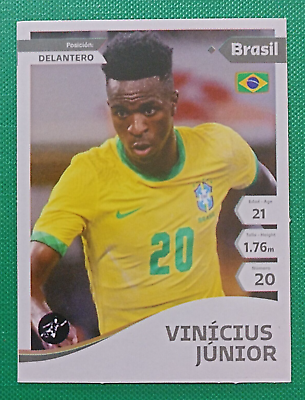Vinicius Junior: The Future of Brazilian Football

Introduction
Vinicius Junior, the young Brazilian football sensation, has garnered significant attention in the world of soccer. With his remarkable agility, dribbling prowess, and scoring ability, he has become a crucial player for both Real Madrid in La Liga and the Brazilian national team. Understanding his journey and contributions to the sport gives insight into the future of football and its emerging talents.
Early Life and Career
Born on July 12, 2000, in São Gonçalo, Brazil, Vinicius began his football journey at a young age. Joining the youth team of Flamengo, he quickly rose through the ranks, showcasing his electrifying speed and technical skills. By 2017, he made his professional debut for Flamengo, where he scored multiple goals and caught the eyes of European clubs.
Transfer to Real Madrid
In 2018, Vinicius Junior signed with Real Madrid for a reported fee of around €46 million, making him one of the most expensive teenage players in history. His initial years in Spain were marked by a learning curve, as he adapted to the physical and tactical demands of European football. However, his perseverance paid off as he displayed his potential more prominently in the 2021-2022 season, scoring key goals and contributing to the team’s success in La Liga and the UEFA Champions League.
Recent Performance
Vinicius’s 2022-2023 season further solidified his status as a top player, with statistics revealing he scored 10 goals and provided 9 assists in La Liga. His partnership with Karim Benzema was particularly fruitful, demonstrating their chemistry on the field. Recently, he has been a pivotal figure in both club and international matches, playing a critical role in Brazil’s campaign in World Cup qualifiers.
Off the Field
Apart from his impressive skills, Vinicius Junior is also recognized for his efforts against racism in football. After facing racial abuse during matches, he has become a prominent advocate for change and equality both on and off the pitch, inspiring many of his young fans.
Conclusion
Vinicius Junior’s rapid rise in the football world exemplifies the depth of talent in Brazilian football. His ability to make game-changing plays, coupled with his advocacy for social issues, positions him not only as a leading player but also as a role model for young athletes. As he continues to develop and mature in his career, Vinicius Junior is set to play a significant role in shaping the future of football, making him a player to watch in the coming years.









